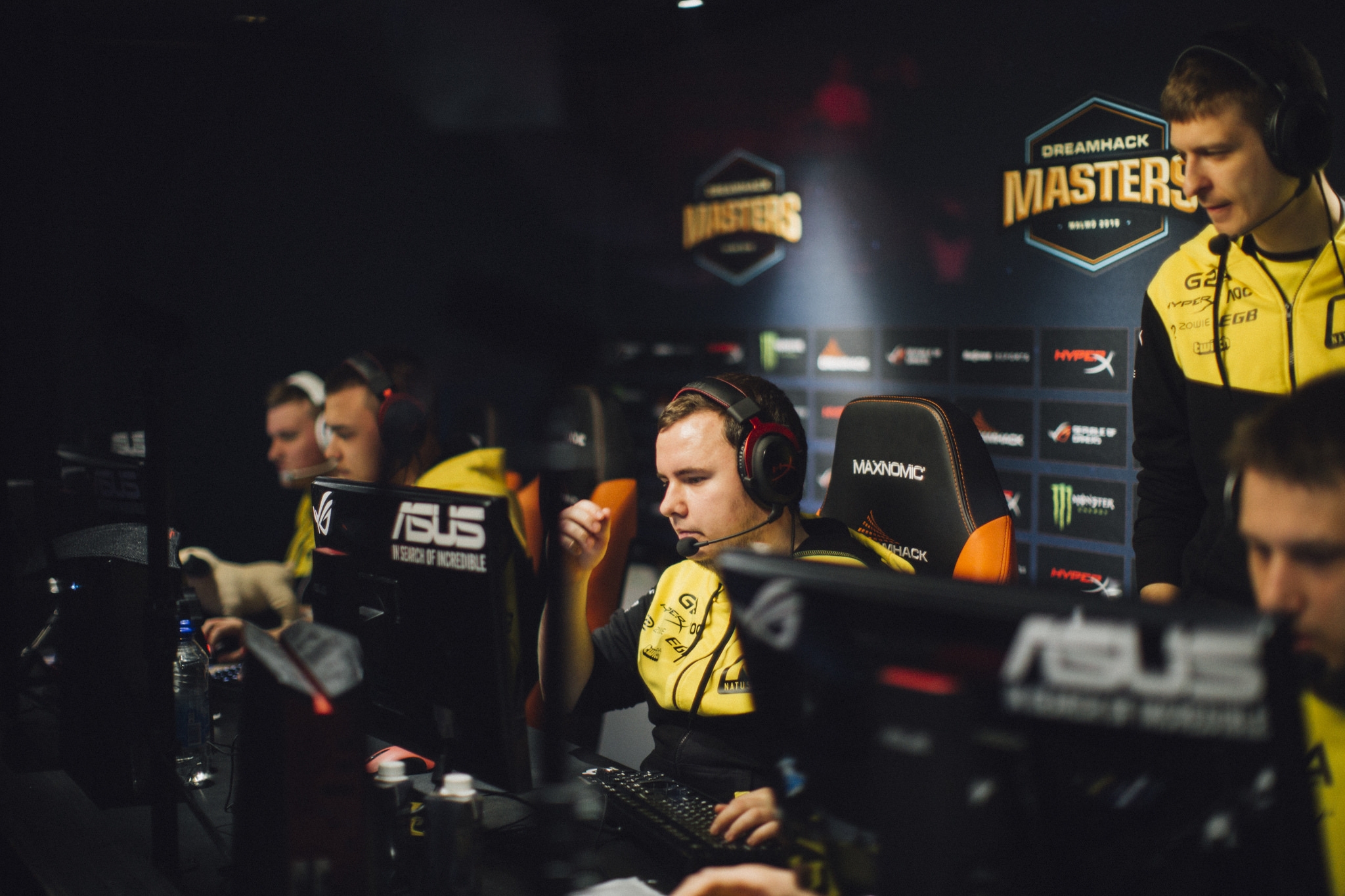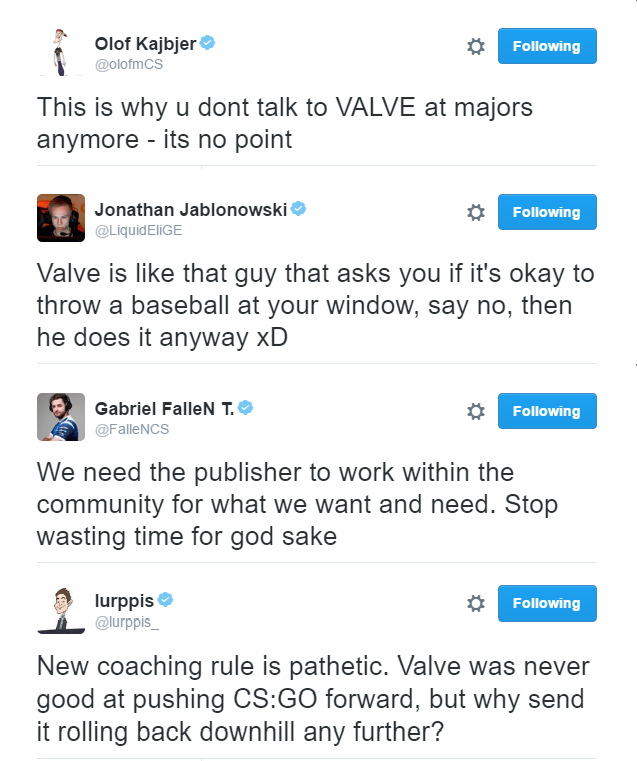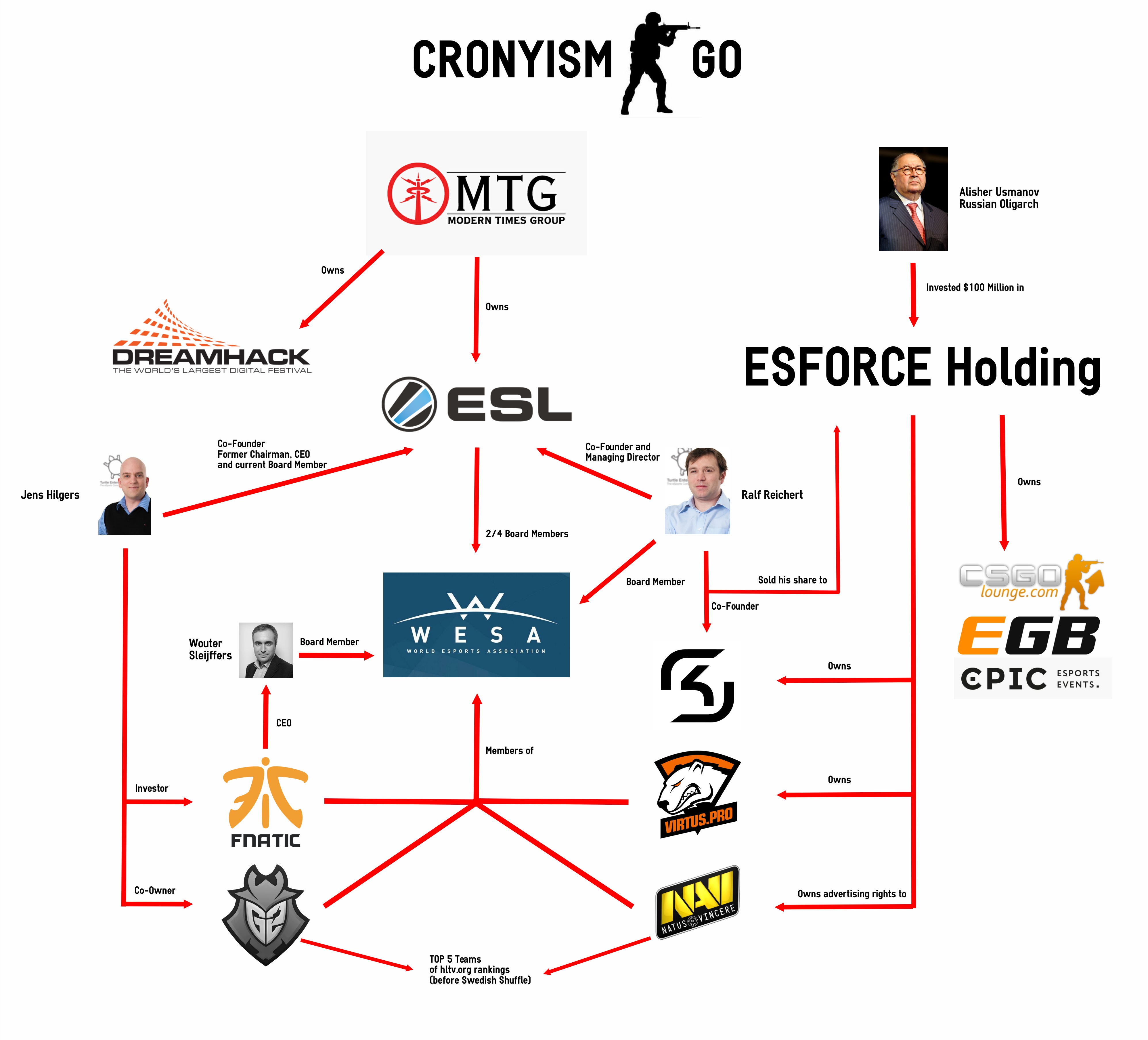We still need to talk about Valve's new CS:GO coaching rule
Why Valve's restrictions on coaching at Valve-sponsored tournaments will do more harm than good.

Image from The Daily Dot.
A few weeks ago Valve announced a new rule that limits the coaches communication with their players at Valve sponsored events, which at the moment means the majors. A coach may now talk during warm-up, between halves and during one of four 30-second timeouts.
When the news about the rule broke, a lot of prominent figures within the esports community voiced their opinions. Some were more upset than others, but the general consensus was that people felt like Valve was taking the game in a direction they didn’t want to see it go.

In a video on his YouTube channel, CS:GO caster Auguste ‘Semmler’ Massonnat tries to explain why Valve has decided to limit what a coach can do. He argues that Valve made it clear that they don’t want a sixth man to be the in-game leader a long time ago, which is true. They haven’t allowed coaches to use PCs and look around inside the server. Valve has given teams time to adjust, which they haven’t. Fair.
But at the same time, players have said that Valve has talked to them about coaches. So far I haven’t found a single one that’s said that they advised Valve to limit the role of a coach.
Here’s the full episode of Coffee and Semmler on the coaching rule:
Semmler represents RoomOnFire—an organization that he co-owns with fellow caster Anders Blume. On their website, they write “we want to inspire the next generation of professionals in our space by providing a platform for the development of existing and new talent through workshops, promoting good industry standards for talent, and providing some of the industry’s most enticing and exciting content."
Keep up to date with the most important stories and the best deals, as picked by the PC Gamer team.
Promoting good industry standards sounds a lot like a caster’s union, which is great. Players and coaches should follow RoomOnFire’s lead. The big difference here is that players and coaches are up against not only tournament organizers but also Valve itself.
I talked to Viktor ‘vuggo’ Jendeby, former coach of Fnatic, and on the topic of a player’s union, he said “I think it’s important that players unite. There is already a player’s union that’s called WESA [World eSports Association]. I’m a member of WESA and we listen to all teams. Right now I think it’s important that players voice their opinions.”
WESA has been criticized for not being as inclusive as they claim to be. Reddit user /u/somedudexyz made a graphic that explains some of the issues with WESA. You can read the full discussion on Reddit here.

Sidetracking aside, vuggo himself was against the new rule. “Short term, the quality of games will be lower. A lot of teams require an IGL-coach. It will be harder for those teams than it is for us.”
The first team that came to mind when I heard about the coaching rule was Natus Vincere, a Ukrainian organization that has seen a lot of success in CS:GO. They’ve played in two major finals, falling short of victory both times. Just before the new rule, they decided to replace Daniil ‘Zeus’ Teslenko with rising star Oleksandr ‘s1mple’ Kostyliev. Zeus has been their in-game leader in the past, but recently they’ve had their coach Sergey ‘starix’ Ischuk call strats for them instead.
s1mple might be the most talented individuals to ever play Counter-Strike, but he has a long history of not being able to control his emotions, and teams have refused to play with him for those reasons. He is a wildcard, but if a team can make it work with him on the roster they’ll be a contender for future major titles. Playing alongside the Americans on Team Liquid, he made the semi-finals at the Columbus major and the grand final at ESL one Cologne.
Now that skin betting is out of the picture, it’s more important than ever that the quality of professional Counter-Strike is as high as it can be.
Is s1mple a better player than Zeus? Definitely. Would Na’Vi have replaced Zeus with s1mple had they known about the coaching rule that was just around the corner? I’m not so sure.
And Na’Vi aren’t the only ones, numerous teams have embraced what some call the future of CS:GO, which is to have a coach as the in-game leader. There are a lot of talented people who’ve devoted their time to become the best coach they can be. Some players have been able to extend their careers within esports by becoming a coach. It’s Valve’s game and they can do whatever they want with it, but is it right to go against the community and at the same time remove job opportunities for the people who arguably make their game more interesting? Yes, the vast majority of the playerbase are casual gamers, but if it weren’t for the vibrant professional scene the game would slowly but surely deteriorate.
After Valve introduced skins to CS:GO and third party companies began to offer skin betting services, the game grew exponentially. Now that skin betting is out of the picture, it’s more important than ever that the quality of professional Counter-Strike is as high as it can be.
The next major will take place in January of 2017, six months after ESL Cologne. Why is it that Valve, for the first time ever, has decided to hold two instead of the usual three majors in a year? A conspiracy theorist might say it’s because they want this coaching rule debate to cool off a bit. It’s probably good to give teams time to adjust to the rule, but it’s a rule that shouldn’t be there to begin with.

